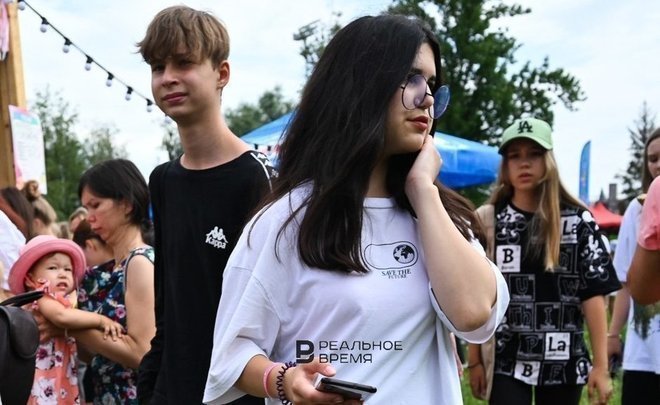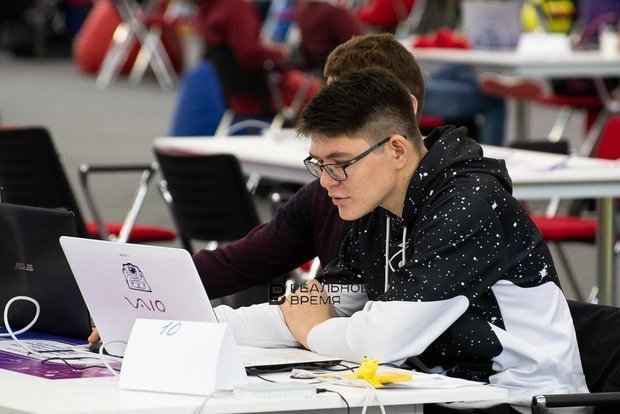Why and how companies build communication with younger generation?
Expert: in 10 years, the solvent 30-year-old audience will be much smaller, competition will increase significantly

Russia has already faced an acute shortage of young specialists, and this trend will only increase in the coming years. International corporations work with schoolchildren to be an enviable employer, and the struggle for personnel begins much earlier than students graduate from university. Why and how companies should build communication with the younger generation — Galina Akhmerova, the founder of the Darwin Foundation for the Development of Accessibility of Modern Education, former top manager of BARS Group and creator of the mobile application for career guidance of teenagers Round, writes about this in the author's column for Realnoe Vremya.
To begin with, let's define the concept of “young generation”. For some, they are schoolchildren, and someone sees them as students or young professionals. In this article, we consider Generation Z — people 10-25 years old to be the younger generation, we focus on this age in our work.
Why should companies work with this audience?
The most frequent objection that we hear from representatives of companies is that it is an “insolvent” audience and we don't need it. As I always say, we need to look at the issue comprehensively.
Firstly, the volume of solvent audience is declining. In 10 years, the solvent 30-year-old audience will be much smaller, competition will increase significantly. Already at this moment, large companies that have been communicating with a young audience for more than a year will become a priority choice.
Secondly, even if we rule out the first point and think about the “here and now” strategy, generation Z is freer, more conscious and builds relationships with parents in a completely different way than was previously accepted. Studies show that today parents consult with their children in 80% of decisions made (according to momri.org ).
Thirdly, these very young people are future specialists. There is a serious shortage of personnel in our country, and struggle for them now begins much earlier than they graduate from university. Large international companies conduct HR policy in such a way as to be an enviable employer and cause delight among young specialists.
The Round application team and I have been working with Generation Z for several years and have highlighted their main features that should be paid attention to. So, the representatives of generation Z:
- They are technologically advanced and prefer online, which is why we are implementing our Android-based platform, on which we post content and work with them. (According to Pew Research, 85% of young people use online materials, 33% watch lectures online, 52% use social networks for educational purposes).
- Realistic Due to the availability of information and its large consumption, they understand that a good education does not guarantee them a high-paying job, so they are happy to hone their practical skills and try themselves at work from an early age.
My sons work every summer not just to earn money, but also to get to know this or that field better.
- Enterprising Just to watch lectures, they are not interested in studying something without practice.
Studied — made — shared — received feedback. This scheme works well with generation Z. If companies hold educational events but do not allow teenagers to prove themselves, then the effectiveness will be much lower. We have experienced this firsthand, so we do not just teach, but also give them the opportunity to immediately put it into practice. - Independent, selfish and socially open Scientists note that representatives of generation Z are confident in their uniqueness and peculiarities due to that they assimilate technologies well.
Positive feedback is important to teenagers, they want to be noticed, they are confident and demand respect. - Multitasking As we noticed, there are a lot of young people in the application who want to try many different directions at once: drawing, it, video editing, engineering specialties, design and so on.
They don't stick to one thing.

How do companies build communication with generation Z?
Each company has its own goals and nuances that need to be taken into account when working. For example, the Round application team had a difficult task to popularise the aluminum industry and increase the awareness of RUSAL among teenagers.
To do this, our team developed five contests that told teenagers about aluminum in their language, through their interests and gave them tasks that could be completed and immediately shared in the application. We took into account all the points that I shared above and were able to captivate a young audience. They not only watched video tutorials, but also took an active part themselves, shared projects and discussed them among themselves.
Thanks to this work, 564 projects have been published (and there are now more than 34 thousand projects on the platform) from an interested audience and more than 1 million teenagers have been reached.
Generation Z differs from ours in that they are ready to try new things, they are open and bold. It is important for us, adults, to remember this and to meet them halfway, to help them realise their ambitions, then it will be easier for us and more fun and effective for young people.